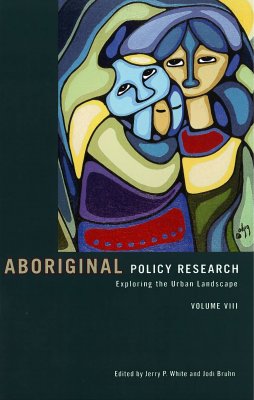
Media
How spring break could promote indigenous reconciliation
Ottawa Citizen, March 9, 2017Print
This coming week, many winter-weary Ottawa families will head south for spring break. If you’re lucky enough to travel, Henry Miller has some advice. The American author described one’s destination as “never a place, but a new way of seeing things.” So how about it? Wherever you go, how about seeking that fresh perspective?
Career Path Profile: Jodi Bruhn
Political Science Now, May 31, 2016Online
URL: http://www.politicalsciencenow.com/career-path-profile-jodi-bruhn/
Political scientists pursue wide-ranging and diverse career paths. This interview series, developed by the APSA Professional Development Program, highlights the many different ways political scientists carry their skills and expertise into the workforce.
University of Missouri Press
978-0-8262-1765-3
Although his contributions to philosophy are revered and his writings have been collected, Eric Voegelin’s persona will inevitably fade with the memories of those who knew him. This book preserves the human element of Voegelin by capturing those valuable personal recollections. Barry Cooper and Jodi Bruhn conducted intensive interviews with Voegelin’s wife, his closest friends, and his first-generation students—many of whom have since passed on—in order to bring to print everything important

Aboriginal Policy Research Volume VIII Exploring the Urban Landscape
by Jerry P. White and Jodi Bruhn (Editors)
Thompson Educational Publishing
978-1-55077-195-4
Co-chaired by Dan Beavon of Indian and Northern Affairs Canada, Jerry White of the University of Western Ontario, and Peter Dinsdale of the National Association of Friendship Centres, this APRC, like those before it, brought researchers, policy-makers, and the Aboriginal community together to make connections, hear about leading research, and learn together Volume VIII begins with a look at governance, followed by issues of service delivery, and concludes with a section on social justice.
Do Tripartite Approaches to Reform of Services for First Nations Make a Difference: A Study of Three Sectors
Published by Aboriginal Policy Studies
2018 First Nations in Canada have developed tripartite arrangements with federal and provincial governments in a range of service areas. Some scholars classify the arrangements as “mere” devolution; others debate whether they mark an emerging, more collaborative Crown/Indigenous relationship. There is also the pressing question of impact. Do tripartite service arrangements promote positive changes for affected First Nations and their members?
This paper examines the character of these arrangements, as well as their impact on both services and relationships among the signatories. Analysing regional tripartite arrangements concluded over the past decade in First Nations policing, child welfare, and primary/secondary education, it then draws on evaluations, and scholarly and other “grey” literature to identify common challenges and successes. Throughout, the paper seeks to discern potential lessons from the past decade for negotiating and implementing tripartite service arrangements in the future.
URL: https://journals.library.ualberta.ca/aps/index.php/aps/article/view/28443
Identifying Useful Approaches to the Governance of Indigenous Data
Published by International Indigenous Policy Journal
2014 Questions of data governance occur in all contexts. Arguably, they become especially pressing for data concerning Indigenous people. Long-standing colonial relationships, experiences of vulnerability to decisionmakers, claims of jurisdiction, and concerns about collective privacy become significant in considering how and by whom data concerning Indigenous people should be governed.
URL: http://ir.lib.uwo.ca/cgi/viewcontent.cgi?article=1175&context=iipj
Improving Health Governance in First Nation Communities: Model Governance Policies and Tools
Published by Institute on Governance
January 1, 2009
Prepared in collaboration with the Assembly of First Nations for the Second Annual First Nations Health Manager’s Conference, this practical publication opens with an introduction on governance and a primer on policy, before describing five model governance policies on topics such as: the relationship of a health authority to the First Nation Council; the roles and responsibilities of board and staff; a code of conduct; and the conduct of board meetings.
In Praise of Taxes: The Link between Taxation and Good Governance in a First Nations Context
Published by Institute on Governance
March 1, 2008
This paper makes the case that broad-based taxation by First Nations governments would enhance their governance practices. The study relies on comparative government and public finance literatures as well as interviews with First Nations that have already imposed some form of taxation. It examines both the advantages of taxation and the ‘curse’ of revenue that does not arise from broad-base taxation – such as oil or natural resource wealth.
URL: http://iog.ca/wp-content/uploads/2012/12/2008_March_in_praise_taxes.pdf
In Search of Common Ground: Reconciling Western-based Governance Principles and First Nations Traditions
Published by Institute on Governance
May 1, 2009
Prompted by the spirit of the new Truth and Reconciliation Commission, soon beginning its work in examining the legacy of the residential school system, this paper seeks to begin to reconcile the governance principles espoused by the Institute On Governance (following the UNDP) with Aboriginal governance traditions.
URL: http://iog.ca/wp-content/uploads/2012/12/2009_May_Traditions.pdf
Biography
Jodi Bruhn is a published policy researcher, author, and facilitator specializing in governance and indigenous/Crown relations. With experience in the public, academic and not-for-profit sectors, she has advised senior government officials, parliamentarians, and indigenous governments and organizations. Before joining Stratéjuste in 2012, she served as the research manager at Aboriginal Affairs and Northern Development Canada and as lead analyst to the Standing Senate Committee on Aboriginal Peoples, Parliament of Canada. From 2007 to 2009, Bruhn was senior researcher at the Institute on Governance. Projects there included workshops for First Nation, Métis and federal government clients as well as publications in the Aboriginal governance program area. Originally from the Prairies, Bruhn holds a PhD (University of Notre Dame), MA (University of Calgary) and BA (University of Saskatchewan) in political science. She also studied political philosophy at the Ludwig-Maximilians-Universität in Munich. An active member of both Canadian and American political science associations, she is an advisor at the Centre on Public Management and Policy, University of Ottawa.
---- Bruhn est une recherchiste publiée sur les politiques, auteur and facilitatrice spécialisée en gouvernance, politiques autochtones and relations Autochtones/Couronne. Avec son expérience récente dans les secteurs public, académique et organismes sociaux, elle a conseillé des clients, des gouvernements et organismes Autochtone, cadres supérieurs du gouvernement ainsi que des parlementaires. Avant de se joindre à Stratéjuste en 2012, Bruhn a occupé les postes de chef recherchiste aux Affaires Indiennes et Nord Canada ainsi que le poste d’analyste principale au Comité Permanent du Sénat sur les peuples autochtones. Durant son passage a la Fonction publique elle a aidé a la mise sur pied, en collaboration avec l’Université d’Alberta, d’un journal sur l’étude des politiques autochtones. De 2007 a 2009, elle a été recherchiste principale a l’Institut sur la Gouvernance. Entre autres projets a cet endroit il y eut des ateliers pour Les Premières Nations, les Métis et le gouvernement fédéral ainsi que de nombreuses publications sur la gouvernance Autochtone. Bruhn est titulaire d’un doctorat en sciences politiques (Notre Dame), d’une maîtrise en sciences politiques (Calgary) ainsi qu’un baccalauréat en études politiques (Saskatchewan).


